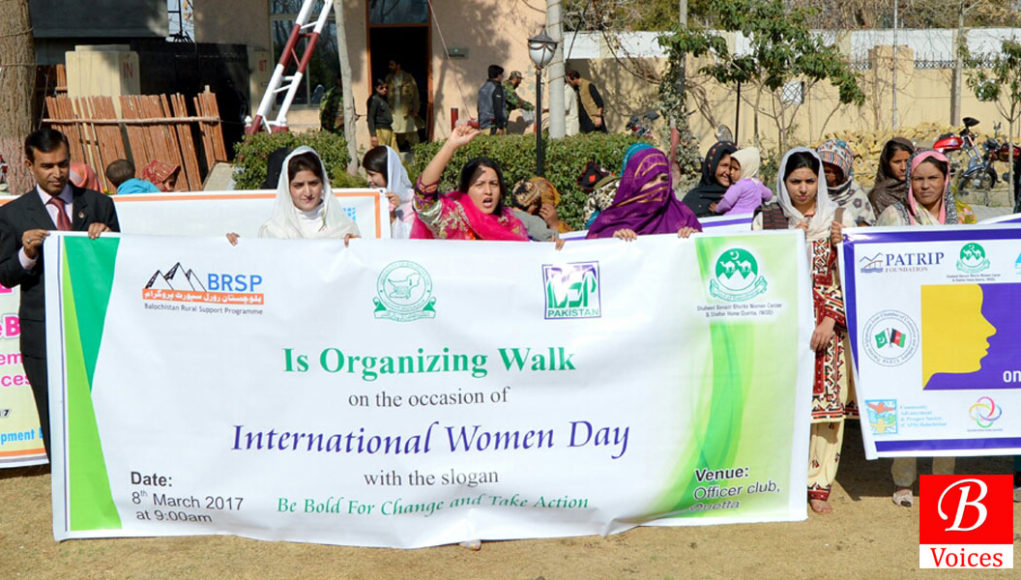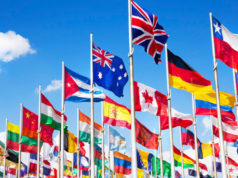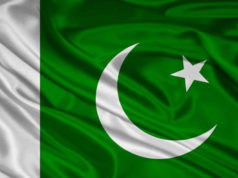Naseer Khan Achakzai
International women’s day is celebrated on 8 march around the world. On this day in Pakistan, many women organizations and political parties arrange “AURAT MARCH” to demand women’s rights. The problem is, it creates divisions in favor of or against the march. Most of the people who criticize the march are prejudiced and don’t learn about feminist history or what it stands for. We have a very famous writer who openly says he is against feminism and is against the concept of women having equal rights, Khalil-Ur-Rehman says, feminists are spreading “behayahi” in the society, I am a male ally and I am in no place to explain the Feminist slogans which women have been explaining for so long, but I would like to point out some factors concerning why I support feminism or all movements of women rights and gender equality.
Here is why I support Aurat March.
Legislators, representatives of civil society, and women working for NGOs have claimed that Balochistan has the highest maternal mortality rate in the world. In rural areas of Balochistan, women are deprived of basic health facilities due to long distances, poverty, and lack of health care centers. They have been suffered the most.
According to Pakistan Health Demographic Survey (PHDS), Balochistan stands first in terms of Maternal Mortality Rate as compared to other provinces of the country. A large number of women lose the battle for life during pregnancy. “Out of 100,000 women, 785 die in Balochistan as compared to 272 in rest of the country.
Not only are the women of Balochistan suffering from diseases, but are also facing physical violence in our tribal patriarchal society. According to Aurat Foundation Balochistan, a non-governmental organization working for women’s rights reports that 50 people including 30 women have been killed in the name of honor in 2018. it drew national attention on 14 June 2020 when a woman named “Bibi Hajira was killed by her husband and brother-in-law in Muslim-Bagh (a small town in Balochistan.) a few days later on 18 June 2020, Bibi Arifa was murdered by her husband in the city of Chaman, Dobandi, and in the same year, a famous female journalist Shaheena Shaheen was shot dead on 5 September in Kech, Balochistan.
Last year 8 march 2020 when I returned home after attending ‘Aurat Azadi March’ a family member of mine taunted me “Han marzi wali aunties say mil kar aa gaye?” It doesn’t end here. I have been always taunted with slogans related to feminism especially the one ” MERA JISM MERI MARZI” when you talk about women’s rights people start bursting on you, labeling you a beghairat, be haya, and many other names.
They force you to question genuinely valid and moral beliefs and actions in the name of egos. They make you feel like you are wrong, but after listening to their unconvincing arguments I now have a clear idea why men or so-called “mard” think about the exploitation done by them.
Pakistani misogynists think that the slogan “MERA JISM MERI MARZI” means that a woman wants to have extra-marital relationships, or wants to sell her body, and religious class tie it with Islam to present slogans and feminism as anti-religion with misinterpretations to provoke people against the terminology and ideology of feminism. However, the ideology itself is not directed against any religion or any law but rather demands the provision of the rights of women; the basic right of autonomy over their own bodies. Those who try to convert these slogans into something negative aim to spread hatred against a specific gender actually show how much squalor they have in their minds. Anyone asking for rights cannot be asked to lower their tone or rephrase their slogans so they fit into our cultural norms.
Being born in Killa Abdullah I have witnessed the extreme forms of injustices, from childhood marriages, domestic violence to selling them, limiting them to the boundaries of the house, and depriving them of basic human rights.
Starting from our village women were subjected to physical violence by their husbands and not only their husbands but their brothers-in-law too and these poor women cannot even complain because they think their husbands are “majazi khuda.” She never receives any support from her parents’ family, there is no one she can seek the help of. Her family, despite being aware of her situation is helpless because her father took 0.5 to 1 million rupees dowry. The husbands are free to take their frustration on their wives as patriarchy shaped them to treat women inhumanly. Child marriages are also common in the same region, several people from my district I know who promise their unborn children to someone, in such cases when those boys and girls, whose engagement has been fixed at the time of their birth, are found in a relationship with another person, are only left with two options, one, they would either run away from home or could take their own lives.
This similar situation has been going on for ages and we have hardly learned anything to better ourselves.
My mother used to tell me about her early married life, she would bring water buckets from 1.5 km away fountain on foot carrying them her hands. She would wake up early in the morning at five o’clock then would warm water for ablution on fire and after that would make “rotis” for the family of 40 to 50 members with additional chores like washing their clothes. These are only a few examples I have shared but there are many more untold stories. I could only put an argument on why I am supporting feminism and gender equality to make the reader understeer that women’s rights are not different from human rights.
So, no matter what the consequences are, I firmly support feminism.
Disclaimer: Views expressed in this article are those of the author and Balochistan Voices not necessarily agrees with them.
Share your comments!








